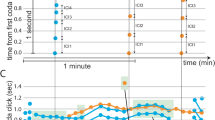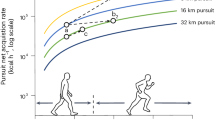Abstract
FOR many years of has been realized that a well developed social organisation is exhibited by every colony of honey-bees. We now know, thanks to the work of G. A. Rösch and others, that a highly efficient division of labour exists among the worker bees of a colony, and that each worker bee has her own particular part to play in the economy of her oolony. The nature of the duty which a worker performs at atny given time is very largely, but not entirely, determined by her age, or, more correctly, by that state of physiological development to which she has attained at the time. But there are no hard and fast rules. If insufficient bees of nursing age are present to feed all the larvae properly, the period of nursing is extended ; similarly, if more than sufficient house-bees are present, their time is not wasted, and the position is readjusted by surplus house-bees becoming foragers at an earlier age than usual. The precise mechanism by means of which such adjustments are made is not yet fully understood.
This is a preview of subscription content, access via your institution
Access options
Subscribe to this journal
Receive 51 print issues and online access
$199.00 per year
only $3.90 per issue
Buy this article
- Purchase on Springer Link
- Instant access to full article PDF
Prices may be subject to local taxes which are calculated during checkout
Similar content being viewed by others
Author information
Authors and Affiliations
Rights and permissions
About this article
Cite this article
Butler, C. Bee Behaviour*. Nature 163, 120–122 (1949). https://doi.org/10.1038/163120a0
Issue Date:
DOI: https://doi.org/10.1038/163120a0
Comments
By submitting a comment you agree to abide by our Terms and Community Guidelines. If you find something abusive or that does not comply with our terms or guidelines please flag it as inappropriate.



